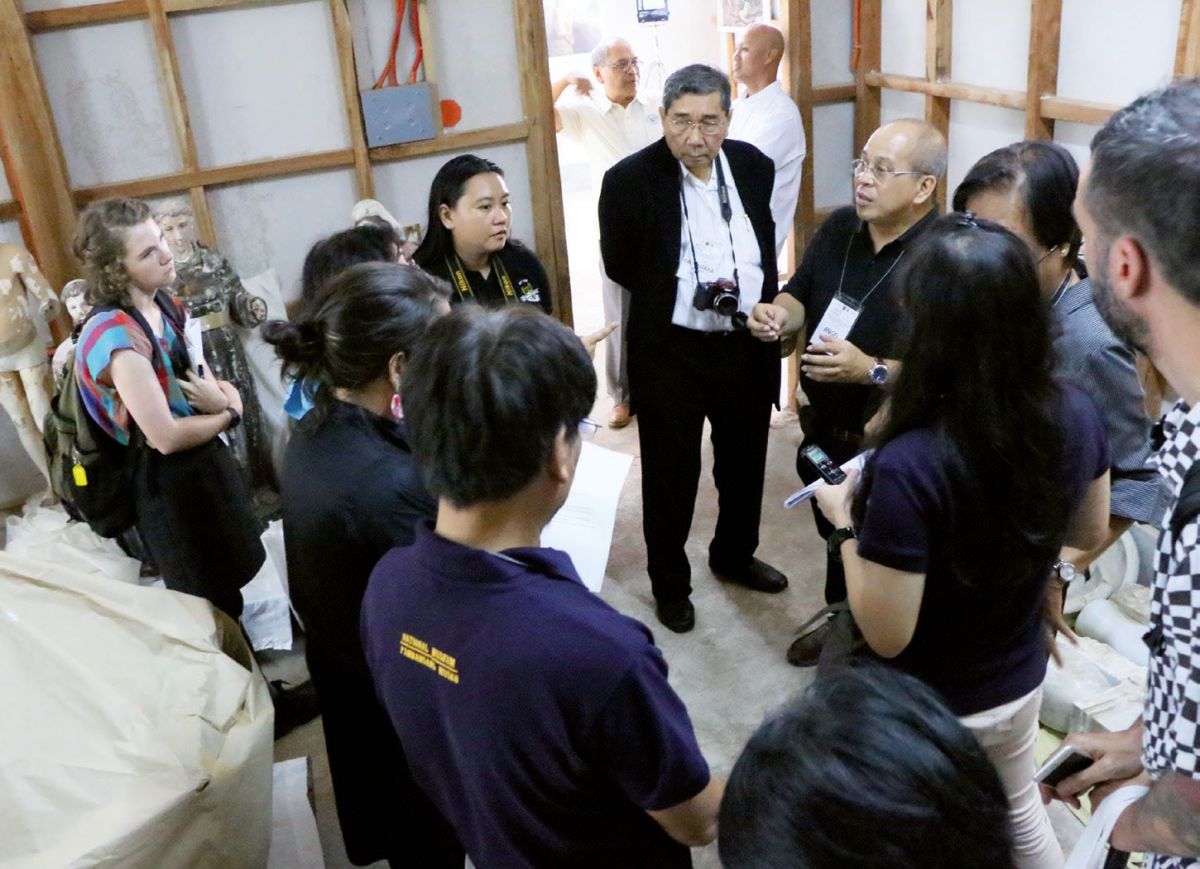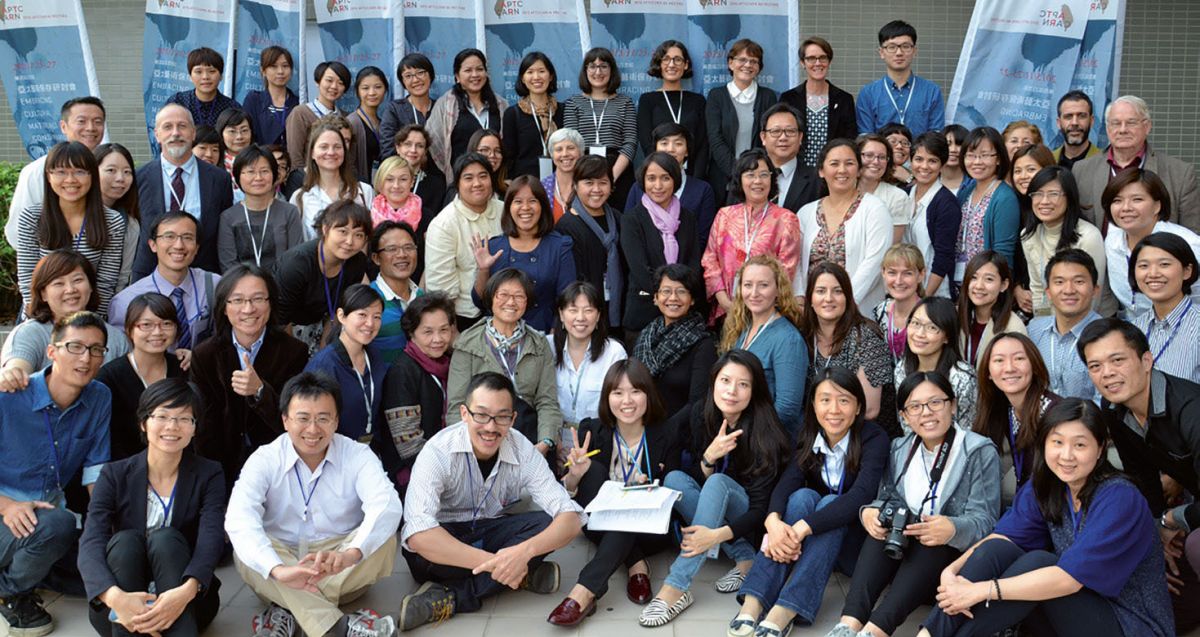APTCCARN: Working towards a network of shared material conservation actions
<p>How long cultural records, cultural assets, art and antiquities last, and approaches for their care, arguably differs across values, geographic place, timescales and knowledge systems. Having worked in the Asia Pacific region for twenty years, I have witnessed how knowledge, which is produced and validated to inform conservation actions in museums in the Asia Pacific, is still dominated by the promotion of universal standards that are unsuitable for tropical climates and a diversity of values in Southeast Asia. From experience, institutions, communities and materials conservation practices have thereby struggled with “a long-standing epistemological debate about the nature of knowledge and expertise between dominant positivist and alternative non-positivist approaches”.[qtip:1|Beebeejaun, Y. et al. 2013. ‘‘Beyond Text’: Exploring ethos and method in co-producing research with communities’, <em>Community Development Journal</em> 49(1):37-53, p.2.] What works in various geographical contexts is poised against an inherent tension between object centred and scientific processes, to those that simply work, are value based and socially situated alongside differences in institutional cultures, developmental histories and disciplinary leader’s foci. Knowledge gaps and asymmetries therefore provided an impetus for the founding of a collective network of engaged heritage workers to form the Asia Pacific Tropical Climate Conservation Art Network (APTCCARN).</p>
Launched in 2008, APTCCARN was inaugurated at Balai Seni Visual Negara in Malaysia - then Balai Seni Lukis Negara (National Art Gallery), which focussed on the theme of ‘20th Century Art Conservation Research’ evolving from my doctorate research with partners in Singapore, Thailand, Malaysia and the Philippines. By 2009, an ‘Online web portals for Art Conservation and Curatorial Research’ was hosted at the University of Melbourne, which garnered impetus for ‘The Conservation of Material Culture in Tropical Climates: The 3rd APTCCARN Meeting’ at Silpakorn University, Thailand in 2012 to claim a focus on materials conservation in the region in its own right; and then ‘Embracing Cultural Materials Conservation in the Tropics: The 4th APTCCCARN Meeting’ at Cheng Shiu University in Taiwan in 2015. In 2017, following a number of extreme natural disasters effecting cultural heritage, 'Natural disasters and cultural heritage in the Philippines: Knowledge sharing, decision making and conservation', was co-hosted with the National Museum of the Philippines to share responses, recovery and conservation actions in a region that is facing unpredictable, uncertain events and the dynamics of change at different scales.
These APTCCARN meeting themes may mirror the tension between a material-based approach and a dialogic and socially situated examination of cultural materials conservation. The chronology of meetings first acknowledged a point of difference in the practice of cultural materials conservation in the region, which required a translation of decision making frameworks grounded in regional relevant research. Quite simple discussions on the longevity of materials in hot and humid climates and the climate controls in museums in the region were discussed. Such persistent discussions were not so different from those raised by OP Agrawal2 in the 1970s and SEAMEO SPAFA’s platform on Heritage & Conservation: Conservation in the Tropics.3 From a materials science conservation perspective, clearly there were few scholarly studies on the risks to objects and their rates of decay, while discussions on perceptions of damage, cultural rights and material lifetimes evolved. So, while the early APTCCARN meetings did bring people together to talk primarily of material matters, it recognized the binary knowledge divide between science and the social, east and west, and expertise versus cultural rights, and was a platform for collective dialogues. We acknowledged that the promotion of expensive materials and scientific methods fosters dependency without developing capacity and empowerment. We started talking about how an object’s value, materiality and care is culturally and geographically determined, and how to establish this, thereby drawing the transcultural links between materials and the social.
Such thinking prompted a certain mindfulness among APTCCARN members and an evolving ethos. With limited conventional textural sources available and an acknowledgement that information asymmetry existed, dialogues vested in people and the embodied knowledge of heritage professionals, artists, curators and cultural practitioners were important steps towards the development of a “shared thought style”.4 APTCCARN’s goal to support an Asia focused cultural materials conservation, prioritised the concept of ‘relationships’ as a cultural practice, its own diversity and claims to knowledge, to foster alternative approaches. Resonating throughout APTCCARN meetings, and more particularly the meeting in 2017 in the Philippines, was the importance of an iterative practice working within a social space and a diversity of technical solutions to reach mutually agreeable goals. But in framing such a holistic practice of conservation in the region, acknowledging the lines of accountability and how flexible do technical approaches need to be, is another evolving tension. Some 10 years on, APTCCARN as a maturing network, knows the importance of reflexivity and connectivity.
Nicole Tse, Senior Lecturer, Grimwade Centre for Cultural Materials Conservation, The University of Melbourne

